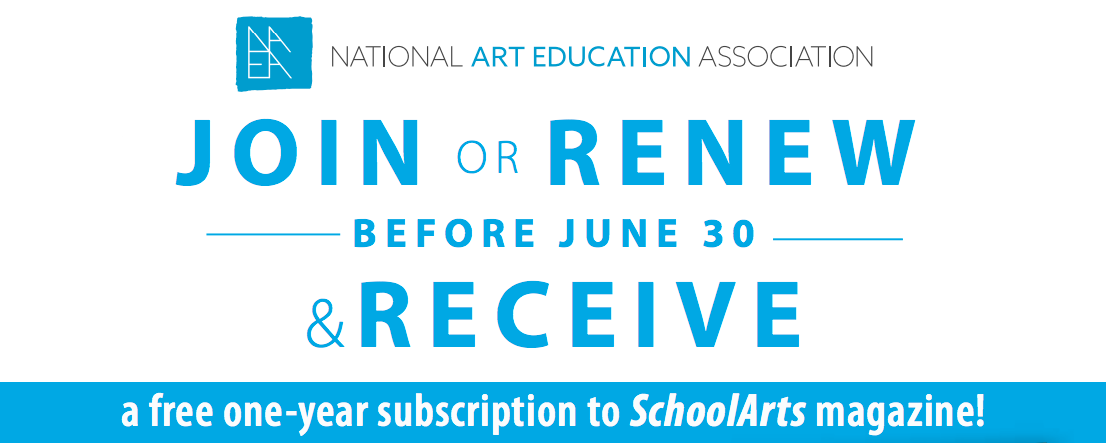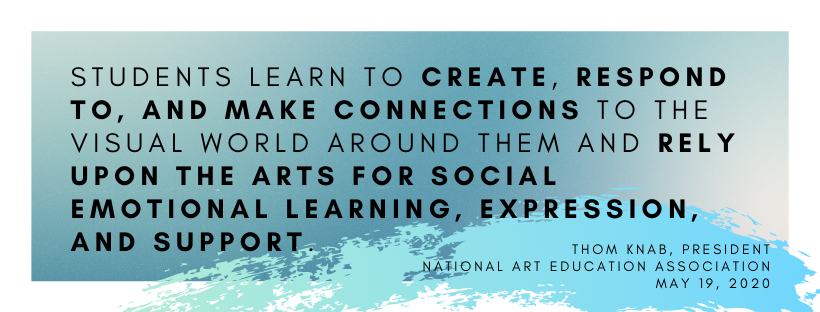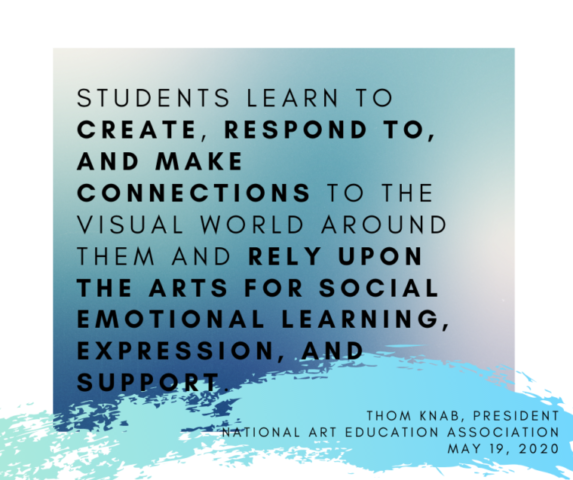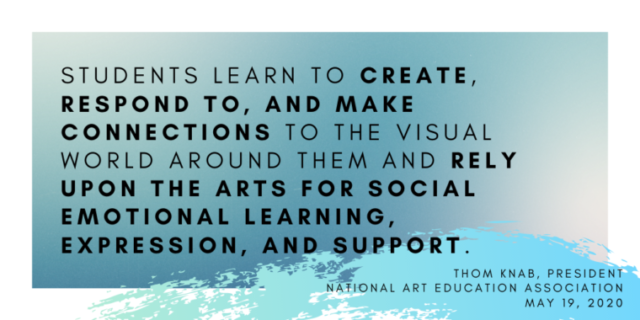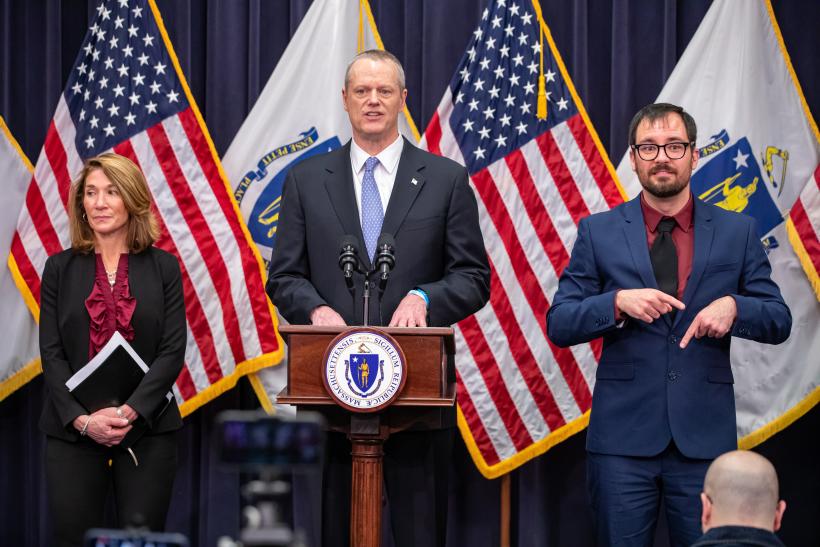Category: News
MA Arts Guidelines – Drafted by the Massachusetts Arts Coalition
The Massachusetts Arts Coalition* shared the guidance document Arts Education in the Time of a Pandemic: COVID-19 Reopening Guidelines for Massachusetts PreK-12 Arts Programs with Governor Baker and Commissioner Riley on June 30, in collaboration with the Massachusetts Association for Health, Physical Education, Recreation and Dance, who shared a similar document specific to health, PE, recreation, and dance. This document is meant to serve as guidance for PreK-12 schools, administrators, and arts educators as they plan for the 2020-2021 school year, to ensure that arts educators can continue to provide meaningful arts instruction for all students in Massachusetts. Drafted by the *Massachusetts Arts Coalition: Arts|Learning, Boston Area Kodály Educators, Massachusetts Art Education Association, Massachusetts College of Art and Design, MASSCreative, Massachusetts Dance Education Organization, Massachusetts Educational Theatre Guild, Massachusetts Instrumental & Choral Conductors Association, Massachusetts Music Educators Association, and The New England Chapter of American Orff Schulwerk Association.
The Massachusetts Arts Coalition will share discipline specific guidance soon.
Message from the MAEA Board of Directors
On Tuesday, MAEA stood in solidarity with those protesting police brutality and the murders of George Floyd, Breonna Taylor, Ahmaud Arbery and every other black life lost. We paused our advocacy for arts education and helped to amplify those whose voices are silenced by white supremacy.
We also reflected on our own work relating to Equity, Diversity, and Inclusion. Following the direction of NAEA, the MAEA Board of Directors began this work last summer, but we have been working too slowly. The MAEA Board of Directors recognizes that we need to do better. In order to best serve the students and art educators of Massachusetts, we must do better.
In the coming days, MAEA will be updating our website to include resources related to Equity, Diversity, and Inclusion. The MAEA Board of Directors are also in the process of hiring a consultant to help us with the work of making our organization inclusive. In the future we will do trainings around antiracist practices. We will be seeking educators to join us in this work and recognize this work requires labor, consistency and accountability.
I invite you to visit our social media accounts for the work we amplified on Tuesday and most importantly, I invite you to view the tribute in honor of George Floyd and every other black life lost on the Black Lives Matter website.
In Solidarity,

Melissa Mastrolia
MAEA President
On Behalf of the MAEA Board of Directors
Definitions of Equity, Diversity, Inclusion Developed & Approved by NAEA Board
Equity: Refers to conditions that support fairness and justness based on individual needs and circumstances whereas all members have opportunities to thrive and realize their best within the NAEA community (adopted December 2017).
Diversity: The term ‘diversity’ describes both observable and non-observable individual differences (life experiences, work context, learning and working styles, personality types among others) and group/social differences (race, gender identity and expression, age, social class, country of origin, ability, beliefs, intellectual and cultural perspectives, among others) that can contribute to organizational vibrancy and a dynamic professional community.
Inclusion: The term ‘inclusion’ describes proactive, intentional, and thoughtful engagement with diversity to the extent that all have the ability to contribute fully and effectively throughout the NAEA community.
NAEA SchoolArts Membership Promotion
NAEA has teamed up with Davis Publications to offer a free 1-year subscription to SchoolArts magazine to art educators who join NAEA or renew their existing/lapsed membership using the special promotional link or over the phone with NAEA (and mentioning the offer) before June 30, 2020.
Here are the details:
Ø WHAT
NAEA and Davis Publications are offering a FREE 1-year subscription to SchoolArts magazine (a $24.95 value!) to anyone who joins NAEA as a new member, or renews an existing or lapsed membership before June 30, 2020, using the methods outlined below.
Ø HOW
To receive the FREE 1-year subscription to SchoolArts magazine, educators must use the special link for the promotion when joining or renewing online or call the NAEA Member Services Team at 800-299-8321 and mention the offer when they join or renew over the phone.
Special link for new members who are joining: https://www.arteducators.org/promo/join20
Special link for existing members who are renewing their current membership or rejoining after their membership has lapsed: https://www.arteducators.org/promo/schoolarts20
Ø DEADLINE
June 30, 2020
IMPORTANT FACTS
- Educators with existing memberships can renew now (even if their membership doesn’t expire for months) to receive this special offer. A year of membership will be added on to their existing membership expiration date. They’ll be ahead for the upcoming school year!
- To receive the offer, educators must complete the join or renew process fully either online using the special links above, or over the phone with the NAEA Member Services Team and mention this offer when doing so.
Advocate for Arts Education During COVID-19
During these uncertain times, MAEA members are working hard to advocate for the continuation of rigorous arts education programs and educators. There are advocacy resources available here to help support and advocate for your local and state arts programs. In addition, use these images to help promote the arts on your websites, blogs, and social media pages.
Right click to download the image below and share using the hashtag #ArtsEdIsEssential #VisualArtsEdMatters #wickedsmART and tag @NAEA or (@WhyArtMatters on Instagram) and @MassArtEd.
Join us for our 1st MAEA Virtual Confab
MAEA wants to hear from art educators across the state during this time of remote learning. Join Melissa Mastrolia, MAEA President, as well as other MAEA Board members on Thursday, June 4th at 7:30pm to check in and speak about your experiences with remote learning and teaching. The virtual confab (informal conversation) will be held on Zoom, details below. Can’t make this virtual confab? We plan to host more in the future!
Join Zoom Meeting
Meeting ID: 831 8024 7150 Password: 544206
Dial by your location: +1 646 558 8656 US (New York)
- Add to Google Calendar
- Add to Outlook Calendar (.ics)
- Add to Yahoo Calendar
Wicked Book SmART – MAEA Book Club
MAEA is happy to announce the title of our summer book club – Therapeutic Approaches in Art Education by Dr. Lisa Kay. This book club will be free to educators and run July – August, 2020 and participants will be awards 15 PDPs at it’s completion. More information, including exact dates and the syllabus will be coming soon. If you aren’t already subscribed to our mailing list sign up today!
Resources for Remote Learning
With many art educators across the state planning for distance learning or online learning for at least the next three weeks, through April 6, the MAEA Board of Directors wanted to share a collection of resources we’ve put together ourselves or have seen shared online.
Each school and/or district are approaching this differently, so please check with your appropriate administrator before implementing any of these resources.
If you have additional items to add to this resource list, please feel free to email webmaster@massarted.com with additional materials.
Governor Announces Emergency Actions to Address COVID-19
March 15, the Baker-Polito Administration announced a three-week suspension of school operations for educational purposes at all public and private elementary and secondary (K-12) schools in the Commonwealth beginning Tuesday, March 17, and a series of new guidance and legislation in response to COVID-19.
“Our administration is taking these rapid steps to protect the health and safety of our residents to mitigate the spread of COVID-19,” said Governor Charlie Baker. “We know that a lot of the measures we are putting into place, including mandatory school closures and prohibiting gatherings of 25 people or more, will cause disruption in people’s day to day lives. With the steps we are taking today, we can ensure residents can still access key state services while taking necessary precautions to limit the spread of COVID-19.”
“The legislation our administration is filing will help ease burdens on cities and towns regarding municipal governance as they work to keep their residents safe,” said Lt. Governor Karyn Polito. “We look forward to working with the Legislature to swiftly enact these bills to help provide our cities and towns with relief.”
The bills and guidance that Governor Baker outlined today include the following:
Schools in the Commonwealth
Elementary and Secondary Schools: suspend educational operations from March 17 until April 6. Full order available here.
Given the evolving data regarding cases of COVID-19 and out of an abundance of caution for the health and safety of children and school staff, the Governor is ordering a 3-week suspension of school operations for educational purposes at all public and private elementary and secondary (K-12) schools in the Commonwealth (not including residential and day schools for special needs students), beginning Tuesday, March 17 and continuing until Monday, April 6. The suspension of educational programming would not necessarily affect the availability of school buildings for the provision of food or other essential non-educational services. As April 6 approaches, the administration will provide additional guidance.
During this period it is critical that students and their families, as well as school staff, stay home as much as possible. If an individual needs to leave home, it is essential to strictly follow social distancing guidelines by avoiding crowds, canceling social gatherings, and maintaining a safe separation of at least 6 feet from others. Restricting access to school buildings will have little impact on public health if these best practices are not followed in good faith.
Although schools must suspend in-person educational operations, staff should be planning for how best to equitably provide alternative access to student learning opportunities during this period and potentially beyond. Equally important, school personnel should develop plans for ensuring to the greatest extent possible that families have access to essential non-academic services for their children – especially involving special education and food services for students who are most vulnerable.
The Department of Elementary and Secondary Education (DESE) will work in partnership with schools and districts to develop strategies and resources to sustain learning and vital services throughout this closure period. Already, DESE has received a partial waiver from the U.S. Department of Agriculture providing greater flexibility regarding food service in certain districts with higher concentrations of low-income students and is actively pursuing additional waivers for the remaining schools and districts.
Early Education and Care: follow EEC/DPH guidance regarding closure based on actual cases
The suspension of educational operations at K-12 schools will inevitably affect the provision of pre-school and childcare services. Although we are not ordering the closure of childcare programs at this time, we are strongly urging childcare providers to strictly observe guidelines that are being issued by the Department of Early Education and Care (EEC) and the Department of Public Health (DPH), which call for temporary closures based on actual direct or indirect exposures to individuals with COVID-19.
At the same time, EEC will prioritize the maintenance and expansion of childcare capacity serving front-line healthcare workers and first-responders across the state.
Higher Education: continue to move towards remote learning
With regard to higher education, the Department of Higher Education and DPH strongly recommend that colleges and universities, both public and private, continue to pursue strategies to reduce the need for students to be on campus, including suspending in-person classes and implementing institution-wide programs to shift to remote learning, technology enabled solutions, and other tools to allow students to successfully complete course and degree requirements. Institutions should also pursue strategies to reduce the need for faculty and staff to be on campus by maximizing remote work opportunities, while maintaining essential on-campus services, especially for residential students who cannot safely return home. Additional guidance will be forthcoming.
The Administration will continue to update the public on further developments and individuals are encouraged to consult both the Department of Public Health and the US Centers for Disease Control and Prevention websites for the most up to date information.
The latest information and guidance regarding COVID-19 is always available at mass.gov/COVID19.
DESE COVID-19 Information & Resources
As many schools are choosing to close for the next week or longer, we want to share more information from the Massachusetts Department of Elementary and Secondary Education has shared more information about the 180 School Day Requirement.
Message from DESE – Read full message here.
In light of concerns about possible school closings for public health reasons, I have updated DESE’s guidance about the requirement for 180 days of school to provide relief to districts. (Note: The Department will continue to revisit this guidance if the situation warrants it.):
- All days lost to health, weather, or safety emergencies between the first day of the school year and March 15 must be made up by rescheduling full school days to ensure a 180-day school year.
- All days lost to health, weather, or safety emergencies between March 16 and June 1 must be made up to ensure a 180-day school year or until the district has reached its previously-scheduled 185th day, whichever comes first. If all five snow days have been used prior to this point, the district is not required to scheduled additional school days.
- Districts will not be expected to make up any days lost to health, weather, or safety emergencies that occur after June 1.
This change means that if you have already canceled school for five days before March 15, you do not need to schedule additional make-up days for any days that school is closed after March 15. The longest that any school district will be required to go is its scheduled 185th day. No schools will be required to be in session after June 30. This policy applies to the current (2019-20) school year only. Anyone who feels that they have special circumstances should contact Associate Commissioner Helene Bettencourt at Helene.H.Bettencourt@mass.gov or 781-338-3120.

